
The Forum for Engineering Education at the 21st Century
The Forum is a platform incorporating representatives of universities, colleges of engineering, government ministries and agencies, industry and youngsters, working together to advance insights and paradigms for engineering education, reflecting the needs of the 21st century.
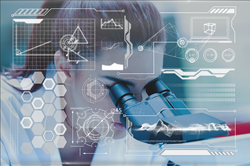
Industrial requirements for bio-fabrication
As part of developing the bio-convergence field as an economic growth engine for Israel, there is great importance in collecting data concerning the industrial need for infrastructure and services. This includes information about the required equipment, the types of products for which service is required, what engineering skills are needed, expertise in design processes, and more.

UNESCO Science Report 2021: Science and Innovation In Israel
The UNESCO Science Report was launched in 1993 under the name of World Science Report. Since then, UNESCO has published seven reports in the series. The series describes and reviews the evolution of the support system for science, technology and innovation worldwide over time. Key emerging trends are identified and placed within their socio-economic and political context. Each report begins with an overview of global trends. Dr. Daphne Getz and the team at the Samuel Neaman Institute authored the chapters on Israel in UNESCO's Science Report.

Evaluation of the Israel Precision Medicine Partnership (IPMP) Program
The Israel Precision Medicine Partnership (IPMP) is a joint initiative of Yad Hanadiv, the Klarman Family Foundation the Planning and Budgeting Committee of the Council for Higher Education, Digital Israel, and the Israel Science Foundation. The program's aim is to advance basic research as well as new diagnostic and therapeutic methods by Israeli academic and clinical researchers. The purpose of Samuel Neaman’s Institute evaluation research project is to identify challenges in the field, understand the nature of collaborations between academics and medical institutions, and monitor the scientific and technological achievements arising from the program.
_20200506114633.245.jpg?w=250&quality=60)
Absorption of Senior Israeli and Foreign Researchers in Israeli Universities
This research, carried out at the request of the Israel Academy of Sciences and Humanities, relates to Israeli and foreign researchers who were senior faculty members in universities abroad and chose to accept position of Associate or Full Professor in Israeli universities. The study provides a recent mapping of these researchers in Israel including their research focus, the motivation for their arrival, their integration in Israeli universities and strategies for encouraging this process.
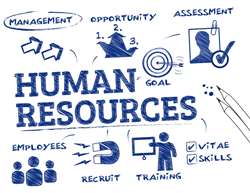
Technology forecasts for scientific and technological personnel needs
This study was conducted as part of a four-year tender for the National Council for Research and Development in the Ministry of Science and Technology. The objective of this study is to forecasts the needs of scientific and technological personnel for selected fields/professions for the short term (10 years).

Fire Suppression Foams and Alternatives
Firefighting foam is the most commonly used method to suppress fires after extinguishing with water. As part of the current project, a literature survey was conducted on the various types of firefighting foams and its substitutes.

Women in Technological and Scientific Entrepreneurship
This research identifies obstacles that prevent women from becoming involved in entrepreneurship in research and technology and suggests ways to increase women’s participation in entrepreneurial activities at the Technion and beyond

University-Industry Relations
Review and critical evaluation of university-industry relations based on data and quantitative indicators. Development of insights regarding optimal policy and models to balance between technology commercialization and technology transfer, which is largely based on cooperation with industry to support industrial research. Recommendations for policy steps based on the insights resolved, addressing the point of view of the well-being of society and national economy.

Underground Infrastructures: Technologies and Means Survey
As part of the project, a survey of the capabilities and means used in a case of fire emergency in underground structures will be conducted. By reviewing the open sources information, a comparison with various countries will be made in the field of existing standards and measures and future technologies.

Models for Translational Medical Research in Israel
This project examines various models for the translation of academic discoveries ‘from bench to bedside’ to create innovative medications. The research examines how different countries in the world support basic biomedical academic discoveries and advance them towards industrial applications. The observation of these models can support the local pharmaceutical eco-system in leveraging Israel’s academic excellence to create societal and economic benefits. In addition, the research examines successful buildups of pharmaceutical eco-systems, in which the academy is a key player, in comparable countries such as Denmark and Singapore.

Artificial Intelligence, Data Science, and Smart Robotics
The aim of the project is to present an up-to-date and complete picture of the current activities in academia and industry in the areas of Artificial Intelligence, Data Science and Smart Robotics, and to examine the possibilities of advancing these fields, as is being done in many advanced countries.
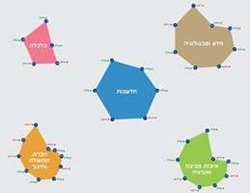
"Wheels of Life" in Israel
The "Wheels of Life" project was launched in 2013, in order to compare Israel's performance with the performance of other countries in five main dimensions of Israel's society: economics, innovation, science and technology, society-governance- education, environment, and energy. The data source used for comparative analysis is the World Competitiveness Yearbook of the IMD School of Management, a leading business school in Lausanne, Switzerland, which presents data on a wide range of global competitiveness variables in 60 countries.

Policy Incentives for Knowledge Creation
The project is implemented under the Seventh Program of the European Union (FP7), a consortium that consists of seven countries (Italy, Germany, France, Spain, Poland, the UK, and Israel). The purpose of the project is to examine empirically the role of the demand side in the creation of technological knowledge, recognition of technological and organizational innovation, and encouraging the increase in productivity. The project is formally complete and our contribution was expressed in five outputs.
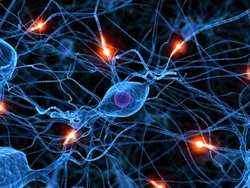
Developing a Northern Biotechnologies Cluster in Israel - BioNorth
The S. Neaman Institute is leading an initiative to establish a ‘Northern Biotechnologies Cluster in Israel’ incorporating all companies, incubators, start-ups and academy researchers in the north of Israel. The rationale for this initiative is that biotechnology has become the fastest growing industrial sector in Israel and worldwide, and is reshaping science, especially life science, medicine, food and agriculture.
_20190307161135.908.jpg?w=250&quality=60)
Scholarly Output in Israel: International Comparison of Scientific Publications
Bibliometrics is a type of research method that uses quantitative analysis and statistics to describe patterns of publications within a given field of literature. Alongside the peer evaluation method, bibliometrics is being used to evaluate the textual output of research (academic papers, patents), by measuring its productivity, quality and priority.
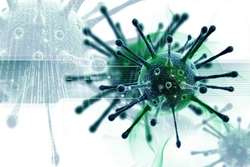
PRIME: Nanodistrict2
The Samuel Neaman Institute participated in the European Nanodistrict2 Project as part of the PRIME program. The project focuses on the dynamics of the development of the nanotechnology field in academic research and in research institutes as well as on the development of industry based on nanotechnologies in different sectors.
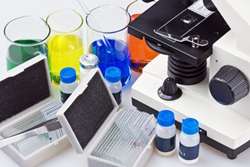
Evaluating the NOFAR Program
The NOFAR program was conceived as part of the implementation of the recommendations made by the "Monitor Report," and stresses the need to establish a fund to support the development of inventions in the fields of biotechnology and nanotechnology that have a commercial potential in universities, so as to increase the chances of successful transfer of the technology from the academy to industry. The program helps build a bridge between the basic research and the applied research at the stage at which industry has not yet recognized the idea as having a commercial potential.

Cooperation Policy in Business and Science with East Asia
Within the national policy framework to expand cooperation with the East, an issue that was discussed in the past has been raised again in practical terms, namely the collaboration between Israeli industry and leading industries in China and India. Two large Israeli companies were recently acquired by leading companies of China and India; the company "Makhteshim Agan" was acquired by Chem China and the company "Taro" were acquired by Sun Pharma, a well-known Indian company.

Proceedings of The International Conference On Privatization In Higher Education
The S. Neaman Institute is leading a movement for critical examination of the university of the future and higher education in Israel. In this context, in December 2004, the Institute sponsored an international scientific conference entitled "The Transition to a Mass Higher Education System - International Comparisons", in cooperation with the United States-Israel Educational Fund, which manages the Fulbright Program for student and faculty exchanges, and the ISEF Fund.
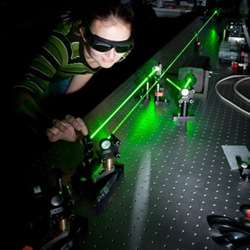
Mapping National Research Infrastructures
The purpose of the research is the mapping of the existing national research infrastructures and the definition of the needs of Israeli researchers with respect to the upgrade and establishment of new research infrastructures.

Prime - Euro CV
The Euro CV project was part of the PRIME network of excellence that examined the use of new indicators for science, technology and innovation (ENID). The PRIME network operated within the EU's Framework Program for Research and Technological Development (FP6).

R&D Vision and Strategy- Leveraging R&D and Technology Adoption for Sustained and Balanced Economic Growth
This effort is headed by Mr. Eli Hurvitz (chairman of Teva) and Mr. David Brodet, and aims to formulate a national strategy for placing Israel among the top 10 countries of the world in terms of economic achievements and social development. The R&D and Technology Adoption Team is one of six teams operating within the Vision & Strategy project. Its mission is to formulate a blueprint for a national Innovation and Technology Policy, (ITP), taking into account both the leading position of the Israeli high-tech industry and its scientific and technological research capabilities, as well as the more traditional industries.

Effects Of Privatization On The Quality Of Higher Education
The purpose of this study is to analyze the relationship between privatization in higher education and the quality of universities. An interesting fact is that of the top 10 universities in the US, nine are private. Previous studies have claimed that there is a relationship between the privatization of universities and their quality, since countries with a high proportion of private resources have superior universities.

Evaluation of the MAGNETON Program
The evaluation of the Magneton program is a research initiated and funded by both the Samuel Neaman Institute and the MAGNET management. The research was performed during 2008-2009. The main research goal was to examine the outputs of the Magneton projects and their success while focusing on the characteristics of the projects, academic researchers and industry head of projects and to evaluate the factors impacting the projects' successes and failures in the past few years.

R&D Project On Fighting Terror
This project is a joint effort of the Council for National Security and the S. Neaman Institute. In this project, various methods for supporting and enhancing R&D to combat terror are evaluated, integrating the private, government and defense sectors.

Funding Basic Science In The Universities
The study relates to various institutions and methods, which include: The Israel Science Foundation, the First program; the budgeting model at the Planning and Grants Committee, and various other sources.

Human Resources for Science and Technology in Israel
The goal of this project, which is operating under the auspices of the S. Neaman Institute and the National Council for Civil Research & Development (MOLMOP) in cooperation with the Central Bureau of Statistics, is to present data on the science and technology human resources in Israel. This data will assist the MOLMOP members in shaping a policy concerning science and technology labor force training for the industry and academic sectors.

Conditions For The Prosperity Of The State Of Israel
In 2004, the S. Neaman Institute established a research project to address the fundamental problems facing the State of Israel and the Jewish people. To that end, the Institute assembled a group of the country's top thinkers and researchers in different areas of expertise - philosophy, society, law, politics and technology

The Economics Of Higher Education (EHE)
Over the past year, a broad research activity took place on the topic of "The Economics of Higher Education: Towards the redesign of the 'Israeli Model'" (in short, EHE), in collaboration with Forum Sapir. The higher education system in Israel is undergoing a profound crisis, which calls for a swift revision of the basic premises upon which it has functioned over the past half century.

Science and Technology in Israeli Public Opinion
In early 2006, Prof. Ephraim Yaar of Tel Aviv University submitted the findings of a survey he conducted on "Science and Technology in Israeli Public Opinion", commissioned by the S. Neaman Institute. The survey examined different ways that the Israeli public relates to the place of science and technology in Israeli society.

Universities of The Future, Research and Science in Israel
The S. Neaman Institute is leading a movement for critical examination of the university of the future and higher education in Israel. In this context, in December 2004, the Institute sponsored an international scientific conference entitled "The Transition to a Mass Higher Education System - International Comparisons", in cooperation with the United States-Israel Educational Fund, which manages the Fulbright Program for student and faculty exchanges, and the ISEF Fund.

Balancing Innovation, Quality and Efficiency in R&D Organizations
During 2004-5, our study focused on how to manage innovation while maintaining quality and efficiency in R&D organizations. We suggest that successful management of new product development is crucial for the competitiveness of Israeli high tech, which has gained worldwide recognition for its technological advancement.

The Zvi Griliches Research Data Center
The Zvi Griliches Research Data Center was established in 2000 to encourage the study of empirical economic of Israel in issues related to the economy of research and development, the high-tech sector, innovation, human capital and productivity.

Science, technology, economics (STE)
STE is a core program of the S. Neaman Institute, aimed at developing national policy alternatives for key issues lying at the interface between Science, Technology and the Economy.

Science Communication
The mass media strongly influence the public’s understanding of – and engagement with – science and related policy issues. Print, broadcasted and online news form a major science related information source. However, scholarship has devoted little attention to communicating science in the Israeli context.

Mapping National Research Infrastructures in Israel
The Samuel Neaman Institute is conducting in 2012-2014 a further study on the subject of ‘Mapping National Research Infrastructures in Israel’. The goal of the study is to build the knowledge database that would allow the creation of a road map for planning national research infrastructures in Israel and to formulate a policy that will define budgets and priorities within a national policy on large research infrastructures in Israel.

Transferring Technology and its Commercialization
How to translate technological knowledge obtained in academe into commercial success is a disturbing question that concerns many researchers and entrepreneurs in the academe. The Samuel Neaman Institute faces the issue as part of its involvement in the Technion.

R&D Outputs in Israel: Quality Characteristics of Distinct Inventions
The report is the third in a series of studies conducted by the Samuel Neaman Institute on Israeli patents. The first part of the study provides updated data on the scope and characteristics of inventive activity by Israeli applicants and inventors in various patent offices (ILPO, EPO, and the USPTO) and in the PCT track. The report presents trends in patent applications and granted patents according to sectoral attributions, examines Israel's international cooperation in the field of inventive activity, and analyzes trends in cross-border patent ownership. The characteristics of foreign applicants at the Israeli Patent Office (ILPO) are also analyzed.
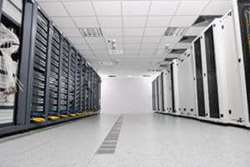
Information centers of MAGNET Consortia
A computerized information center, one of the largest in Israel, operates at the Samuel Neaman Institute. The center was established to fulfill the needs of knowledge management and to supply information science services to consortia that operate within the MAGNET program, and is part of the MAGNET program of the Ministry of Economy.

Indices for Science, Technology and Innovation in Israel and international comparison
At the beginning of the 21st century, the Samuel Neaman Institute identified the need to establish an infrastructure for advancing a systematic and ongoing process of forming national policy on Science, Technology, and Innovation (STI). The objective of this program is to improve the understanding of the STI system of Israel and to answer the question of how processes associated with the development of science, technology, and innovation contribute to increased knowledge, increased productivity, improved economic performance, professional employment, sustainable development, and social welfare. Understanding of the process is based on the collection, analysis, and correct presentation of the various relevant indices and on the analysis of trends as they change over time and in comparison with other countries.

Where is Chemistry Education Heading?
More than a decade ago, working groups at the Neaman Institute explored the future of the chemical industry in Israel. One of the four working groups focused on the question of education in chemistry. Under the leadership of Prof. Judy Dori, this group investigated the state of chemistry teaching in Israel and the future of chemistry education in Israel by interviewing and administering questionnaires to chemists, chemical engineers, academics, and teachers.
_20190307170301.445.jpg?w=250&quality=60)
RISIS (FP7 Project)
Work Package 9 (WP9) is part of the RISIS (Research Infrastructure for Research and Innovation Policy Studies) Project. SNI researchers are responsible for coordination between the different participants in WP9. The aim of WP9 is to develop a geographic clustering method that delineates concentrations of spatial activity regarding science, technology, and innovation.
_20190307165359.710.png?w=250&quality=60)
Learning Infrastructures in the Field of Nanotechnology – EduNano TEMPUS
The EduNano project is part of TEMPUS, an EU program that supports the modernization of higher education in Eastern Europe, Central Asia, Western Balkans, North Africa, and the Middle East. SNI participates in the project together with the nano centers of the Israeli universities and Elbit Systems. In addition, the Technical University of Sofia in Bulgaria, the Polytechnic Institute of Turin in Italy, and the Grenoble Institute of Technology in France participate in the project.
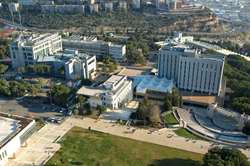
Unique aspects in the Technion development
This study provides a wide view on the progression of the Technion, since its establishment until nowadays. Over the years the institute faced heavy national challenges in the domains of defense, economy and society. At the same time, efforts to raise academic standards and excellence have been continuous extended. All these activities affected the progression and the uniqueness of the institutional culture. As a result, academic excellence has been achieved, together with major contributions to the defense, economy and society in Israel.
_20190307165250.006.jpg?w=250&quality=60)
A traffic light for a math teacher
Collaborative development of mathematics teaching plans for the highest level (5 units) as a means for nurturing mathematics teachers' community of practice in the northern region in Israel

Science and Technology Education Forum
The Forum for Science and Technology Education started its activities in 2013. The purpose of the forum is to establish and promote cooperation between different sectors in Israel in order to foster K-12 science and technology education. The Neaman Institute decided to focus on this topic due to the importance attributed to science and technology education in Israel for the future of the state and the need to increase the number of high-school pupils who choose to study these subjects on the AP level.

Sectorial Specialization and Diversification Indices for R&D
Economic activity that is concentrated in a small number of sectors could indicate specialization and that competitive advantages are being exploited. However, it can also render the economy vulnerable to risks arising from technological and economic shocks.